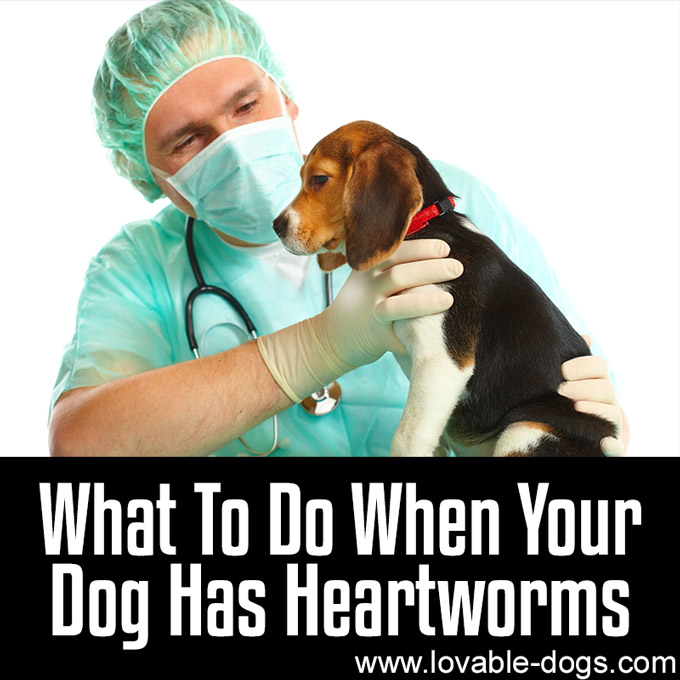
What To Do When Your Dog Has Heartworms – Image To Repin / Share
Image – Photo – © Monika Wisniewska – Fotolia.com
Heartworm disease is a condition caused by Dirofilaria immitis, a blood-borne parasite. The cycle of the disease starts with a female mosquito which bit an infected dog. Within the next 10-30 days, the microfilariae will further develop in the mosquito’s gut. An infection occurs when the parasite-carrying infective larvae bites another dog. Eventually, the larvae will move into the bloodstream then to the heart and the blood vessels of the dog. The larvae will develop into mature heartworm, then reproduce microfilariae in the next 6-7 months. [1]
Heartworm disease is often diagnosed in dogs aging between 2 and 8 years old. It rarely occurs in dogs less than a year old because microfilariae usually takes at least five months to develop into mature adult worms. This is the main reason why dog heartworms are often diagnosed in their advanced stage.
When infected, the most common organs affected by the presence of heartworm are the lungs and the heart. The parasite clogs the heart and the major blood vessels thereby reducing the supply of blood to organs such as the kidneys, liver and the lungs. Eventually, this causes the organs to malfunction. [2]
In the early stages of infection, no clinical sign is visible. Eventually, cough begins to occur. In severe cases of the infection, signs such as exercise intolerance, abnormal heart sounds, temporary loss of consciousness, and difficulty in breathing also arise. [3]
In most cases, results of the physical examination on infected dogs are normal. However, dogs which are severely affected may show signs of heart failure on the right side of their body. In addition to ultrasonography, angiography, and radiology, necropsy can also be conducted in order to verify the presence of heartworm.
Infections brought about by heartworm can actually be treated successfully. The ultimate goal of the treatment is to eradicate microfilariae and adult worms with microfilaricide, and adulticide, respectively. [4]
Though heartworm disease can be treated, prevention of the illness is still considered as economical and safer. Regular intake of chewable or injectable products as prescribed by veterinarians helps in monitoring the health of your dogs, as well as reducing its susceptibility to heartworm diseases. [5]
More Info: Want to know more information about heartworms, and what to do when your dog has been infected by disease?
Okay, here is the link http://www.2ndchance.info/heartworm.htm
References:
[2] http://www.petmd.com/dog/general-health/evr_dg_heartworm_disease
[3] http://www.heartwormsociety.org/pet-owner-resources/heartworm.html
[4] http://www.heartwormsociety.org/pet-owner-resources/heartworm.html
[5] http://www.heartwormsociety.org/pet-owner-resources/canine-heartworm.html

